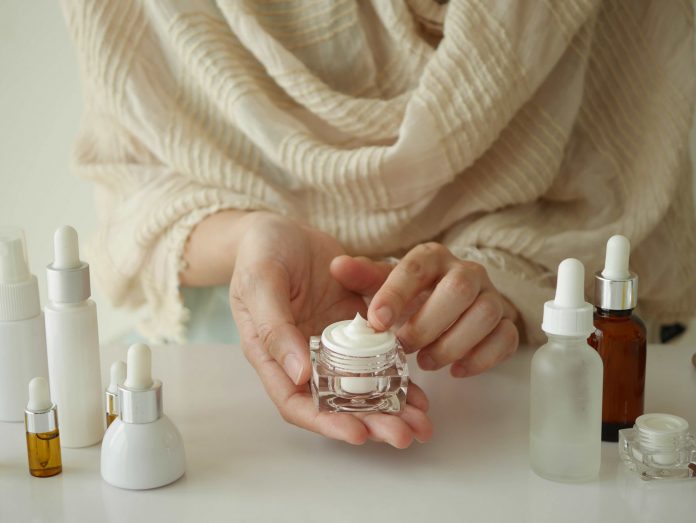What causes dry skin and how can we help customers seeking to deal with the problem, especially in the cooler seasons?
With the colder months approaching, people with dry skin will increasingly present within our community pharmacies. Whether they’re hoping to add something new to a tried and tested skincare regime or just looking for one product that can help reduce dryness, pharmacies are often the first place customers look to for advice in this space.
Dry skin is a common problem for many Australians, especially the elderly, and can be triggered by a number of factors, both environmental and genetic. By providing a good moisturiser and recommending customers avoid irritants, pharmacists can help in the effective management of dry skin.
What is dry skin?
Dry skin, or xerosis, refers to when the outer layer of skin becomes dehydrated, meaning small splits or cracks form, resulting in flaking or scales.1 Dry skin is a recurring condition that usually appears in winter, due to low humidity levels, which leaves the skin deprived of moisture.
Studies suggest that low humidity can cause scaling in healthy normal skin and exacerbates existing skin dryness.2 Skin dryness is also common in skin conditions such as psoriasis and eczema.
Dry skin is more common in older people, for whom the condition increases the risk of developing pruritus (itchy skin), which leads to lesions and skin infections. The occurrence of dry skin in older patients is multifactorial but can be linked to the use of diuretics and similar medications, humidity, overuse of heaters and air conditioners, as well as exposure to skin sensitisers.3
“There are multiple factors that may contribute to dry skin,” Associate Professor Deshan Sebaratnam, Dermatologist at Liverpool Hospital in Sydney, said. “This may be genetic, for example, variants of the gene coding for filaggrin contribute to dry skin, or environmental, for example, ambient low humidity [or] the use of soaps that strip the skin of natural oils. Rarely, some dermatological conditions can also cause significant dryness of the skin.”
Aggravators
For those with dry skin, a number of factors can aggravate the condition. Associate Professor Sebaratnam says these include low humidity and wind, irritating clothing such as woollens, and soaps and detergents.
Some active ingredients can also cause dry skin to worsen, including:4
- Chemical peels.
- Retinoids.
- Glycolic acid.
- Salicylic acid.
- Benzoyl peroxide.
- Fragrance.
“If your skin is dry or chapped, it may be more prone to inflammation with exposure to ‘actives’,” Associate Professor Sebaratnam said.
Putting moisture in motion
Moisturisers work by rehydrating the top layer of skin and sealing in moisture. Common ingredients within skin moisturisers are humectants, which help to attract moisture, those that help to seal in the moisture, such as petroleum jelly, and emollients, which fill in the space between skin cells, which has a smoothing effect.5
Associate Professor Sebaratnam recommends regularly applying a moisturiser to add moisture back into the skin.
“The best thing to do is use a regular moisturiser – ideally, one that’s bland, greasy and free of food products and unnecessary fragrances or preservatives,” he said.
“Examples include Vaseline, or products from QV, Cerave or Dermeze. Soap-free products can also help – for example Cetaphil – over normal soaps or handwashes.”
References
- Australasian College of Dermatologists. ‘Xerosis’. 2017. edu.au/atoz/xerosis/
- Goad N, Gawkrodger DJ. ‘Ambient humidity and the skin: the impact of air humidity in healthy and diseased states’. 2016. ncbi.nlm.nih.gov/27306376/.
- Foy White-Chu E, Reddy M. ‘Dry skin in the elderly: Complexities of the common problem’. 2011. com/science/article/abs/pii/S0738081X10001203?via%3Dihub.
- ‘The ultimate skin care routine for dry skin’. 2022. healthline.com/health/beauty-skin-care/skin-care-routine-for-dry-skin#things-to-avoid.
- Harvard Health. ‘What to do about dry skin in winter’. 2011. harvard.edu/womens-health/what-to-do-about-dry-skin-in-winter.
This feature was originally published in the April issue of Retail Pharmacy magazine.






